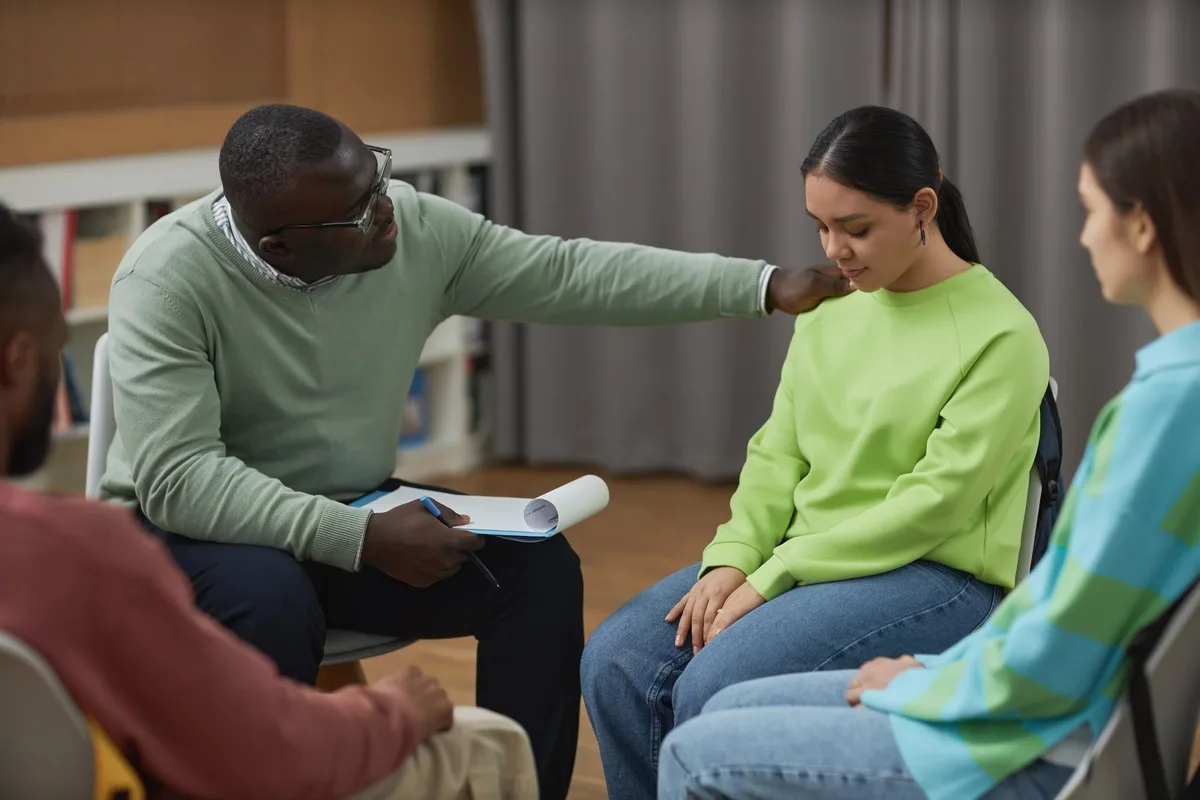24/7 Helpline:
(866) 899-221924/7 Helpline:
(866) 899-2219
Learn more about Medication-assisted Treatment centers in Rosedale
Medication-assisted Treatment in Other Cities

Other Insurance Options

Group Health Incorporated

BlueCross

Evernorth

CareSource

Providence

Sutter

Access to Recovery (ATR) Voucher

State Farm

CareFirst

Aetna

BHS | Behavioral Health Systems

Multiplan

Premera

Holman Group

UnitedHealth Group

Magellan

Optum

Coventry Health Care

American Behavioral

Carleon






























